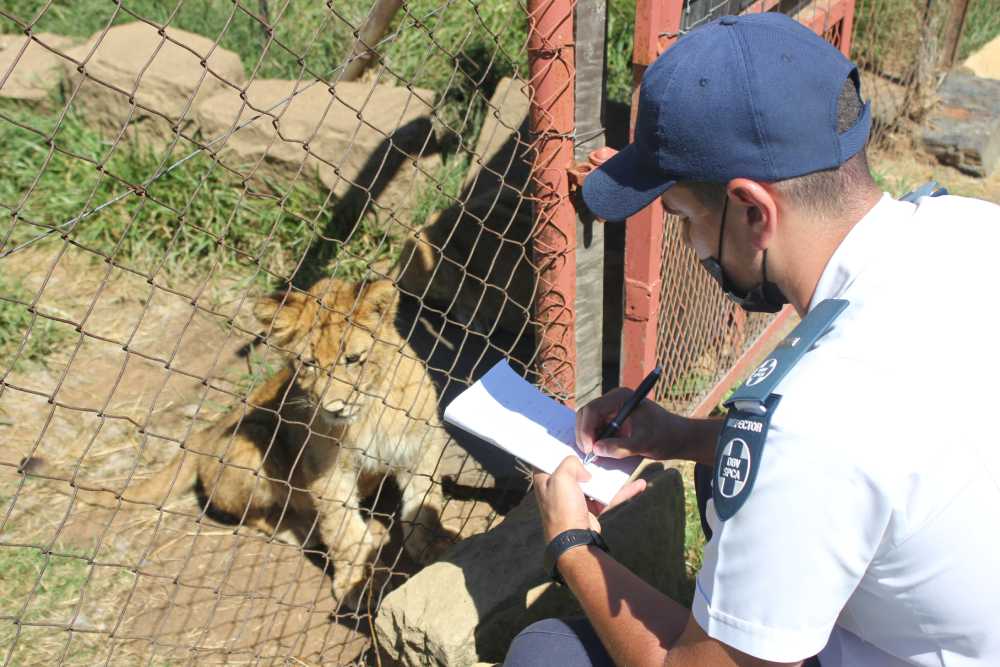South Africa Approves Closure of Commercial Captive Lion Industry

South Africa’s Minister of Forestry, Fisheries and the Environment, Barbara Creecy, has today confirmed Cabinet has approved the findings and recommendations of a new Ministerial report that supports calls to end the commercial captive lion industry.
The report acknowledges a voluntary exit should only be the first step in the longer-term government objectives of ultimately closing down the lion breeding facilities and to stop the commercial exploitation of lions and ‘canned’ hunts.
Responding to the report, Dr Louise de Waal, Director at Blood Lions said: “It was of vital importance for the MTT report to make it clear that voluntary exit should only be considered as the first step of a wider process and affirms the ultimate need for a mandatory end to the lion farming industry in South Africa.
“We need to ensure that the industry fully understands that at the end of the process the only acceptable types of lion facilities in South Africa should be ‘safe havens’ – spaces for healthy lions to be given lifetime care, where they are not used or traded for profit, and have a no breeding and no interaction with people, except for veterinary care.”
To halt the growth of the captive lion population, the report includes recommended protocols based on animal welfare criteria for lion euthanasia, carcass disposal, sterilisation, transport and keeping conditions. It also states the need to prevent the purchasing of new lions and re-entry into the industry.
The report also provides several recommendations that aim to safeguard and protect wild lion populations in South Africa, including the mass-incineration of lion bone stockpiles – and it rejects the idea of releasing captive bred lions back into the wild because of the unnecessary risks involved.
While the report recommends the international trade in lion skeletons and live lions should be prohibited, a “trade out exit” option cites captive hunting and the domestic trade in live lions and/or lion skeletons, parts and derivatives would be permitted during a phase out period.
Dr Neil D’Cruze, Head of Wildlife Research at World Animal Protection, added: “World Animal Protection has been calling for a mandatory end to lion farming due to the cruelty and criminality involved and, in this regard, the report makes some great strides forward. In particular, the report’s recommendation for the mass-incineration of lion bone stockpiles is of great relief given concerns that a reintroduction of lion bone exports would risk stimulating demand among Asian consumers and act as a cover for illegally sourced lion parts.
“However, the opportunity for lion farmers to legally provide canned hunts and trade lion bones domestically during the phase out window underscores the need for urgent action. Until clear time-bound objectives are set, lions continue to suffer in inhumane conditions, legal trade will provide a cover for criminal activity, and farms continue to pose risk to public health and safety. The longer the industry continues, the more opportunity for harm endures.”
The MTT’s report has been released only days after the release of the Policy Position on the Conservation and Sustainable use of Elephant, Lion, Leopard, and Rhinoceros which shows the continued government’s commitment to the ultimate closure of the commercial captive lion industry.
However, World Animal Protection and Blood Lions would like to see firm and committed timelines for a staged approach to put an end to these unethical and cruel practices.






